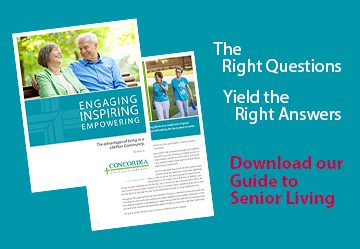
Avoiding Caregiver Guilt
The Many Challenges of a Caregiver: Finding a Balance
Family caregivers are responsible not only for meeting the healthcare needs of an aging family member or friend facing a chronic condition, illness or disability, but also for providing emotional, physical and often, financial support. On average, a family caregiver spends upwards of 24 hours each week caring for a family member or friend who is no longer able to maintain an independent living lifestyle, assisting with activities of daily living like dressing, eating and bathing, as well as providing transportation and performing healthcare tasks—some of which they may not be entirely qualified to administer.
While caregiving can be a positive experience for both the caregiver and the loved one, it’s not uncommon for family caregivers to experience a high level of stress. This is especially true when they are still holding down a career and have a family of their own to attend to, as caregivers are left very little time to attend to their own needs.
Losing the Caregiver Guilt: Assisted Living Improves Quality of Life
When the burden of caregiving finally overwhelms and a decision to move a family member or friend has been made, many caregivers experience feelings of extreme guilt. This is a natural response; caregivers feel like there’s more they could have or should have done, or that they could have asked for more help from others. They may even feel guilty they didn’t ask for help in the first place! Guilt is a complicated emotion, and it’s important to remember that the decision to move a loved one into an assisted living community was not one that was taken lightly.
However, in time, new residents will flourish in an assisted living community. In fact, many residents report they wish they would have made the move much sooner, as they feel stronger, healthier and more independent than they have in years. Plus, caregivers have peace of mind knowing that their friend or family member’s needs will be attended to by a caring, professional staff who is available around the clock.
Remember, the reason for moving a friend or family member to an assisted living community was to avoid potential safety hazards in the home, or because of a rapid decline in health. Or, possibly the move was made to alleviate the financial and emotional toll caregiving was taking on the entire family. Sometimes, family caregivers put their own careers on hold to attend to their caregiving duties, which can lead to stress that threatens their own health.
Although caregivers may sometimes wish there could have been an alternative, especially those who know their friend or family member wished to remain in their homes, it’s important to focus on the positive aspects of the move. In an assisted living community, residents enjoy three chef-prepared meals each day, can attend a variety of social activities and wellness programs, and no longer worry about maintaining a home.
The Importance of Support Groups for Caregivers
Family caregivers should continue to seek support even as friend or family member adjusts to their new lifestyle in the assisted living community. Caregiver support groups allow for a chance to connect with others, share common experiences, and talk through any feelings of guilt. Often, life-long friendship are formed in these groups, as sharing a common struggle creates bonds with others that feel as close as family.
Caregiver Support from Concordia Life Plan Community
Every second and fourth Tuesday of the month, join Concordia for our Caregivers Support Meeting hosted by our caregiving expert, Mel Roberts. This event is open to the public, and offers caregiver resources and support to those who need it most. Please call (405) 720-7200 to RSVP or fill out our form today.
If you’d like to learn more about Concordia, view our floorplans today, or contact us to schedule a visit to see all our beautiful community has to offer.
Caregiving

